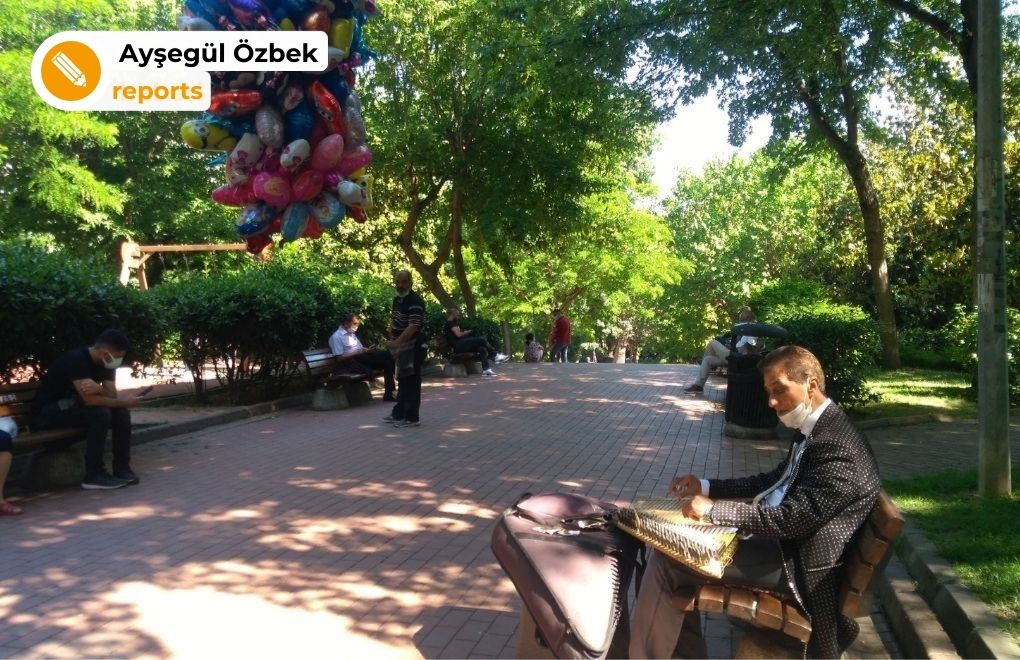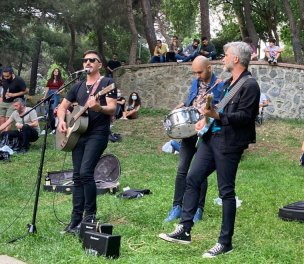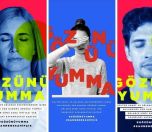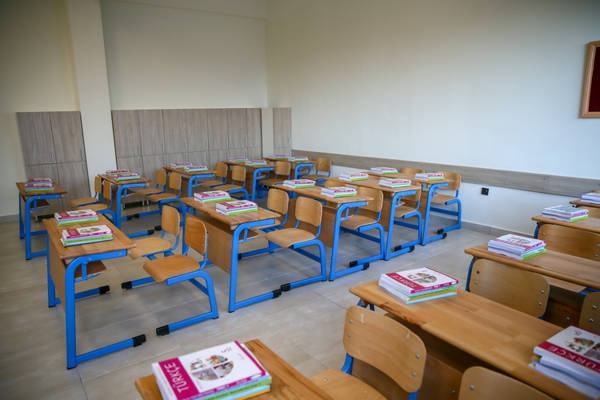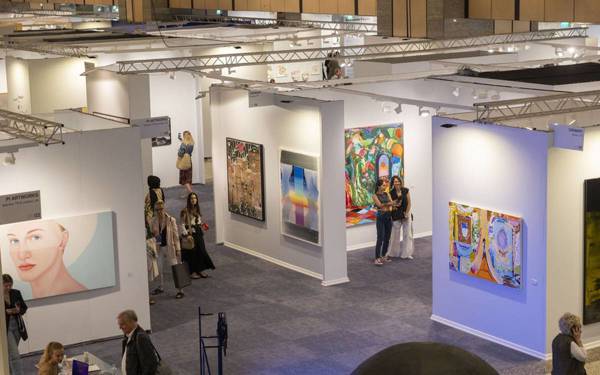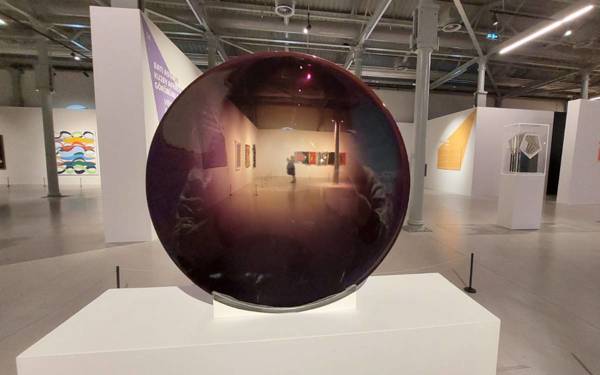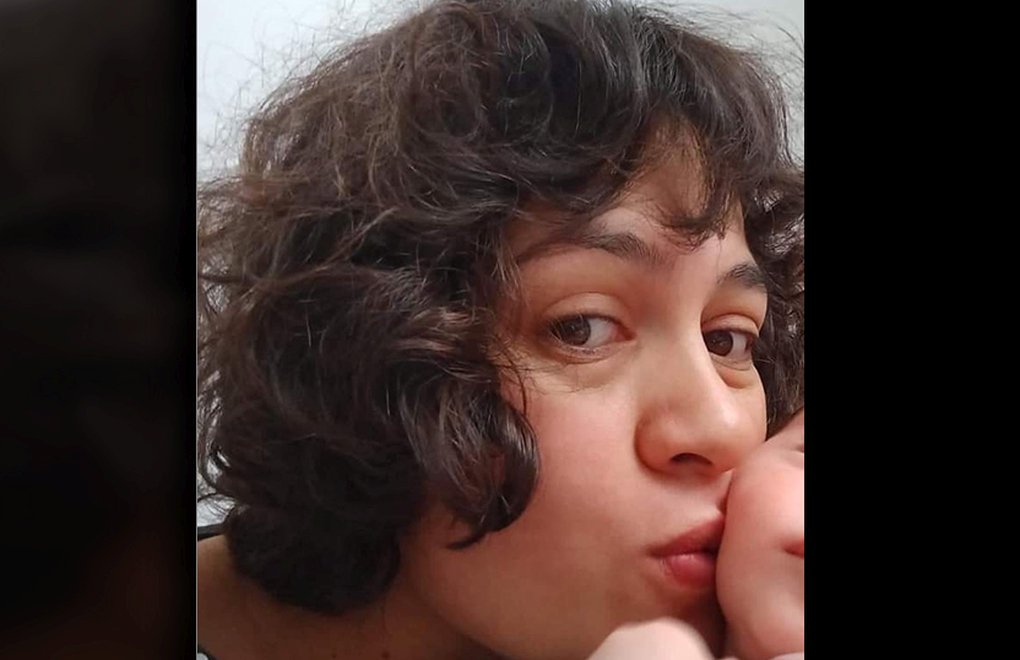Click to read the article in Turkish
"I have been a musician for 55 years, I make a living as a musician. I don't know anything else. I am a spoon [a makeshift percussion instrument] virtuose of Turkey, they call me Kaşık (Spoon) Mustafa."
66-year-old Mustafa Uysal, or Kaşık Mustafa, as he is more widely known, worked with several well-known musicians such as Gülben Ergen, Burhan Öçal and Buzuki Orhan Osman, he also taught the Sultans of the Dance (Anadolu Ateşi) team, he says. But, above all else, he remembers the time when he played together with Laço Tayfa and Hüsnü Şenlendirici on the Harbiye Open Air Stage in İstanbul nearly 15 years ago.
He went from street to street
Mustafa Uysal has been on the stage since he was 11. He worked on the stage and in restaurants. "I have been a musician for 55 years, this is the first time that I am playing on the streets," he says.
He is going through tough times like several other musicians in Turkey amid the novel coronavirus (COVID-19) pandemic or, more specifically, amid the lack of adequate financial support to artists and the musicians' exclusion from the recent normalization steps.
Before the pandemic hit a year and a half ago, Kaşık Mustafa had been working in the taverns (meyhane in Tr.) in Beşiktaş, İstanbul. He waited for some time for the taverns to reopen. Then, they set up the 'street team', as they had to. His friends took their clarinet and darbuka, he took his spoons. He left his house in Kasımpaşa, traveled around the city by subway. They played their music by going from street to street, from Zeytinburnu to Bakırköy, from Yeşilköy to Üsküdar on the Asian side of İstanbul.
"We have come to know İstanbul thanks to this," he jokes.
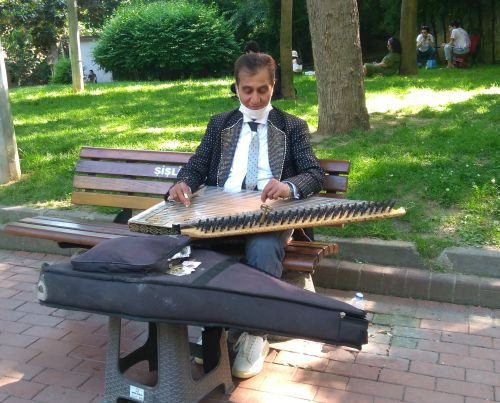
Most recently, Kaşık Mustafa has been playing his qanun in İstanbul's Maçka Park. "But why don't you play spoons?" He answers, "Spoon is an instrument of rhythm, it cannot be played by itself."
'We have suffered so much'
He always has a smile on his face while talking to us, he expresses his gratitude; however, he cannot help adding:
"I smile anyway, this is how I am. But, believe me, since the pandemic hit, since that period began, we - my fellow musicians and I - have suffered so much. Some of them even committed suicide. Some of them broke their instruments on the streets. May God help them.
'Music at 9 p.m.? How so?'
"Yes, I had so many hardships, I still do. But when my God permits... I mean, I live in a rented house. Would a property owner wait for you to pay the rent for 11 months? Some give you money, some give their prayers, as the saying goes. The landlord is good; he said, 'Okay, I trust you. When your business is back on track, you will pay two-month rent every month.'
"In the past, we used to start playing at 7 in the evening and play till night. As the businesses have been closed due to the pandemic, we have been forced to come here. The place where I played last had been closed for a long time. They have now permitted them to reopen, but until 9 in the evening. And music is not prefered at those hours. We earn our livelihood here."
* Mustafa Uysal first played qanun then spoons at the Maçka Park in İstanbul. Video editing: Korcan Uğur / bianet
'I have got used to it'
"We were going around before we came to Maçka Park, we were going from street to street, we were going anywhere you can imagine. We were wearing our coats and going around on the streets as a group.
"It is the first time that I have so much hardship, but I have got used to it. The Mayor of Şişli has also said, 'Okay, you can stay here, no one will bother you.' The feedback in this park is also nice. They say, 'Brother, this is the first time we see such a qanun player as you in Nişantaşı.'
"I have got used to it, too. We cannot do any other job than being a musician anyway! Doing another job is not for us. If I am in a very bad situation, I will go and sell water, but thank God, we have the art of music."
First experience on the stage at 11
"Everyone plays quadruple spoons, I play the double one. It is much harder," says Kaşık Mustafa, speaking about his art. He remembers his master Savaş Kavsa: "He lent a hand to only me. He said to me, 'Put the notes in front of me, I will play you the spoon.'
"May his soul rest in peace, he taught me how to play the spoon from A to Z. He was a shoe repairer. He would call me, I would run to him after school. He would always listen to me with his hammer in his hand.
"He put me on the stage while I was 11. I am originally from İzmir. Every year, all artists used to come to the İzmir Fair. The most prominent singer of the time was Nuri Sesigüzel. Brother Nuri looked at me. 'What about this guy, what will he do,' he asked. My master told him, 'You will see now what he will do.' I had long hair back then. I came up to the stage and started playing. The baglama player urged me to stand up and I started performing my show with spoons. And I broke the spoons at the end! Everyone in the audience was up, the mats were all around the place."
'I was working in İzmir till morning'
In addition to qanun and all rhythm instruments, Mustafa Uysal also plays the alto saxophone as he learned how to play it during his mandatory military service. Shortly afterwards, he came to İstanbul:
"I spent more than half of my life in İstanbul. I was 26 years old when I came here. I am now 66. But we cannot go to İzmir now, we have got used to it here. We are bored when we go there. My wife and I went there for a couple of times, but we could not do it there.
"Back then, I was playing spoons at the nightclubs of İzmir till morning. From one program to the next... While people were earning 10 lira, I was earning 40-50 lira with spoons. I was going around with soloists.
'I would be retired for 20 years'
"They wanted me to work at the [state channel] TRT. Baglama player Yılmaz İpek wanted me there. I didn't want it back then. I said to myself, 'Why would I get up at 8 in the morning for 100-150 lira?' As I did not accept it, they took Recai Bayraktar, my blood brother.
"I have - of course - regretted it. Because I would perhaps be a worldly known musician. If I had entered the TRT, I would be retired for 20 years now. I still traveled around, I went on tours, I traveled to 20 countries. I played with Huri Sapan for 6 months of a European tour. We went to France with Burhan Öçal."
'They will give 3,000 lira, if it happens'
"I have no income. What I earn here today is all. I only get an old age pension," says Mustafa Uysal. He applied to the "Don't Let Music Stop" support project of the Ministry of Culture and Tourism, but his application was not approved "because his forms were missing."
"Several fellow musicians benefited from it, but I could not. I was told twice, 'Yours does not work.' I said, 'Okay.' What could I do? It has been brought up again, they have said to me, 'There will be a new period, those who could not benefit from it will be able to apply.' If it works, they will give three thousand lira. Let's see, this time it will happen, if we are lucky."
'They work at restaurants, but not insured'
"It is really hard to not communicate with the audience, to not have those conversations. We are used to nightlife. While I used to go to bed at 2, 3 in the morning, I now sleep at 10 in the evening, as I have to," says Kaşık Mustafa. Apart from being away from his job due to the pandemic and the bans accompanying it, he also has a request from the Ministry of Culture:
"My biggest wish is that... We have not seen it, our generation has not seen it, but for the next generations... There are several fellow musicians, but they do not have insurance. The biggest problem is insurance. They work at restaurants, but they are not insured.
"Postponing it through the years, people come to my position in the end. I wish our Mr. Minister addresses this issue... If they say that musicians cannot work without being insured any more, both the prestige and value of the musician will increase as well."
'I want the world to know these spoons'
Concluding his remarks, Kaşık Mustafa says:
"It is something invisible to the eye, playing spoons looks so easy to people. But I have so many fellow musicians, they tried to do it, but unfortunately failed. My son did not want this instrument, either. I am hopeful for my grandson, Ege. Therefore, there is something I want most: If our Minister of Culture wishes, I would like to play the spoon for him. I would like to introduce these two spoons to the world." (AÖ/SD)





